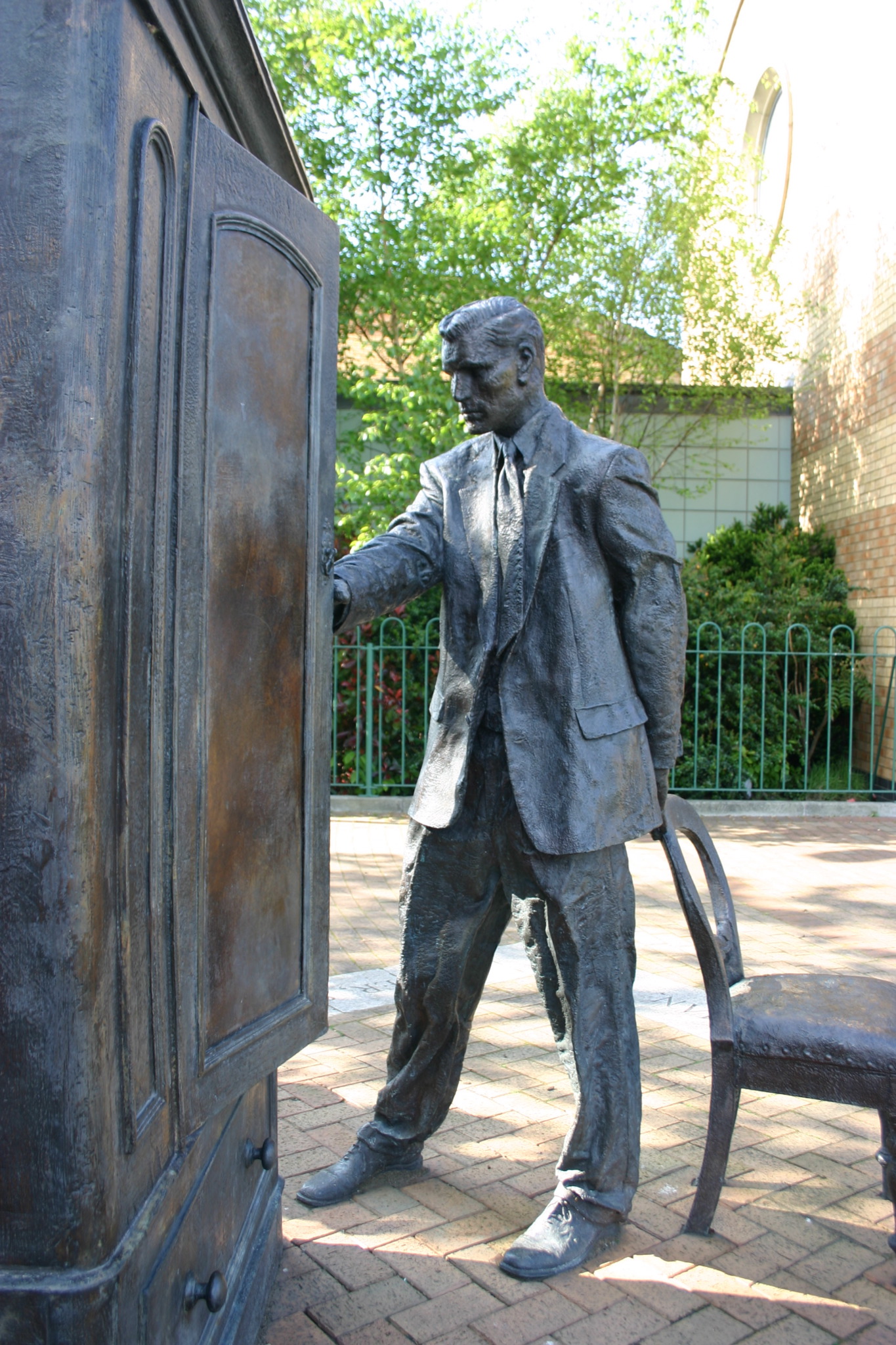The Lion, the Witch and the Wardrobe (1950) Ch. 15: Deeper Magic from Before the Dawn of Time
The Chronicles of Narnia (1950–1956)
Clive Staples Lewis Quotes
Source: Miracles (1947), Ch. 16: "Miracles of the New Creation"
On Edmund Spenser and his famous work, in a letter to Arthur Greeves (7 March 1916), published in The Collected Letters of C.S. Lewis : Family Letters, 1905–1931 (2004) edited by Walter Hooper, p. 170
Book II, Chapter 3, "The Shocking Alternative"
Mere Christianity (1952)
“Are the gods not just?'
'Oh no, child. What would become of us if they were?”
Orual & The Fox
Till We Have Faces: A Myth Retold (1956)
Letter VIII
The Screwtape Letters (1942)
Martin Luther, quoted at the beginning of The Screwtape Letters
Misattributed
The Abolition of Man (1943)
Tolkien's The Lord of the Rings
Book III, Chapter 8, "The Great Sin" http://books.google.com/books?id=OF-YSMKCVwMC&q=%22A+proud+man+is+always+looking+down+on+things+and+people+and+of+course+as+long+as+you+are+looking+down+you+cannot+see+something+that+is+above+you%22&pg=PA124#v=onepage
Mere Christianity (1952)
A Preface to Paradise Lost (1942), Chapter 2: "Is Criticism Possible?"
“Ah, Psyche," I said, "have I made you so little happy as that?”
Orual
Till We Have Faces: A Myth Retold (1956)
“Not my idea of God, but God.”
A Grief Observed (1961)
Equality (1943)
The worst of all public dangers is the committee of public safety.
"A Reply to Professor Haldane" (1946), published posthumously in Of Other Worlds: Essays and Stories (1966)
Some of these ideas were included in the essay "The Humanitarian Theory of Punishment" (1949) (see below).
Preface
The Screwtape Letters (1942)
Pilgrim’s Regress 44–45
The Pilgrim's Regress (1933)
C. S. Lewis' Letters to Children – letter to Lucy (11 September 1958)
That is how Bulver became one of the makers of the Twentieth Century.
"Bulverism" (1941)
Pilgrim’s Regress 22
The Pilgrim's Regress (1933)
The Weight of Glory (1949)
“All mortals tend to turn into the thing they are pretending to be.”
Letter X
The Screwtape Letters (1942)
Pilgrim’s Regress 100
The Pilgrim's Regress (1933)
Pilgrim’s Regress 168
The Pilgrim's Regress (1933)
Pilgrim’s Regress 19–20
The Pilgrim's Regress (1933)
The Four Loves (1960)
"Christian Apologetics" (1945), p. 89
God in the Dock (1970)
Pilgrim’s Regress 49
The Pilgrim's Regress (1933)
Letter (19 April 1951); published in Letters of C. S. Lewis (1966), p. 230
Paraphrased from a letter C. S. Lewis wrote to Mrs. Johnson on March 16, 1955: "A housewife's work [is] surely, in reality, the most important work in the world ... your job is the one for which all others exist", as reported in The Misquotable C.S. Lewis (2018) by William O'Flaherty, p. 63
Misattributed
“The devil…the prowde spirit…cannot endure to be mocked.”
Thomas More, quoted at the beginning of The Screwtape Letters
Misattributed
“It's so much easier to pray for a bore than to go and see one.”
Letters to Malcolm: Chiefly on Prayer (1963)
Pilgrim’s Regress 176
The Pilgrim's Regress (1933)
“There is wishful thinking in Hell as well as on Earth.”
Preface
The Screwtape Letters (1942)
“I became my own only when I gave myself to Another.”
Letters of C. S. Lewis (17 July 1953), para. 2, p. 251 — as reported in The Quotable Lewis (1989), p. 334
Letter VIII
The Screwtape Letters (1942)
The Discarded Image: An Introduction to Medieval and Renaissance Literature (1964)
“The humans live in time but our Enemy (God) destines them for eternity.”
Letter XV
The Screwtape Letters (1942)
Book I, Chapter 1, "The Law of Human Nature"
Mere Christianity (1952)
“The hardness of God is kinder than the softness of men, and His compulsion is our liberation.”
Surprised by Joy (1955)
Letters of C. S. Lewis (29 April 1959), para. 1, p. 285 — as reported in The Quotable Lewis (1989), p. 469
Source: The Great Divorce (1944–1945), Ch. 9
Letter XXVI
The Screwtape Letters (1942)
Pilgrim’s Regress 12–13
The Pilgrim's Regress (1933)
"Haggard Rides Again", in Time and Tide, Vol. XLI (3 September 1960)
The Magician's Nephew (1955), Ch. 10: The First Joke and Other Matters
The Chronicles of Narnia (1950–1956)
Source: The Great Divorce (1944–1945), Ch. 9
